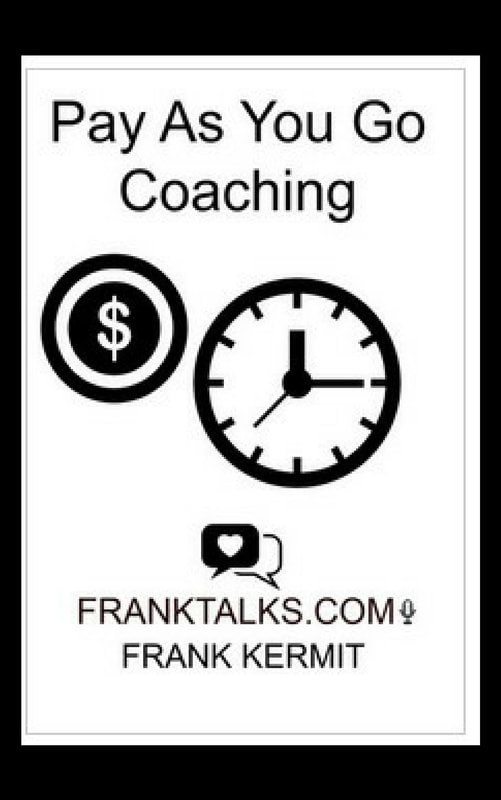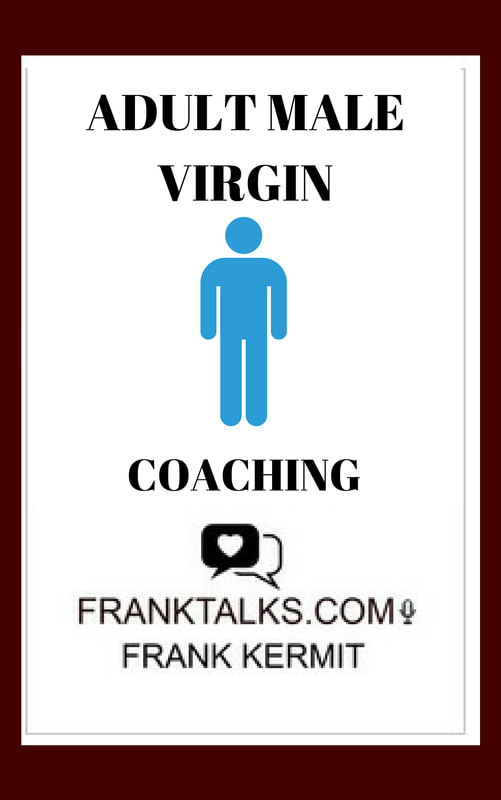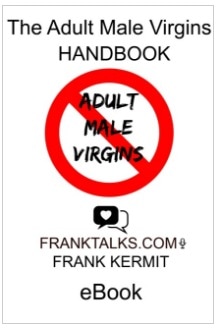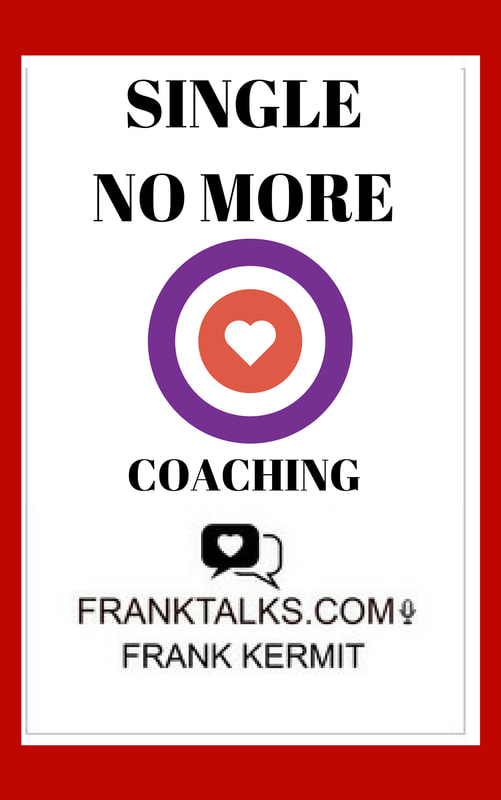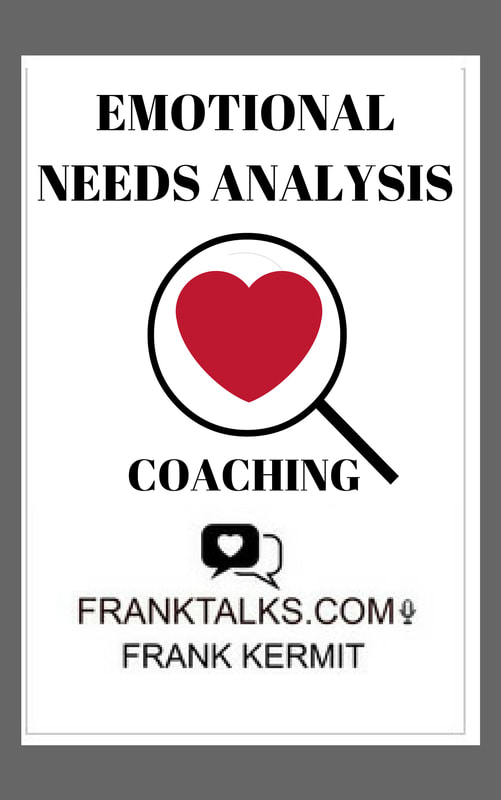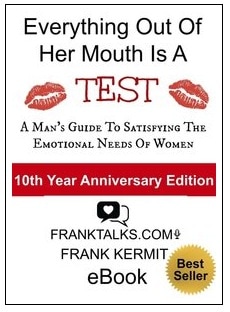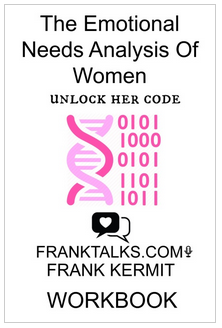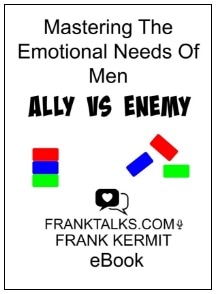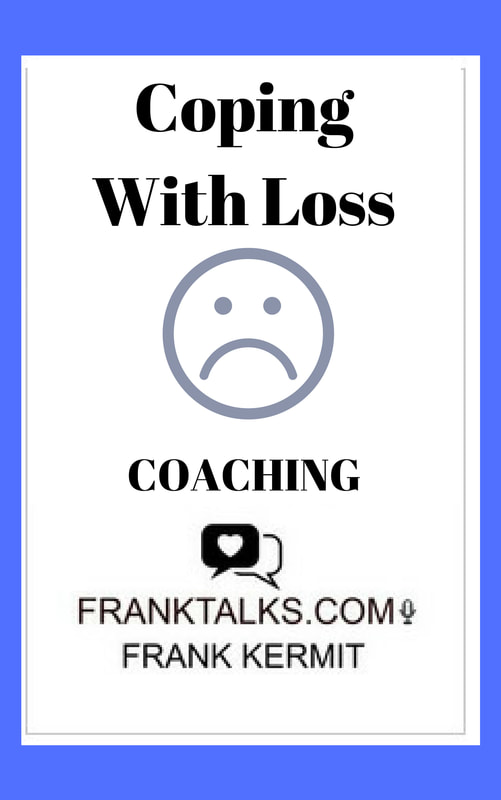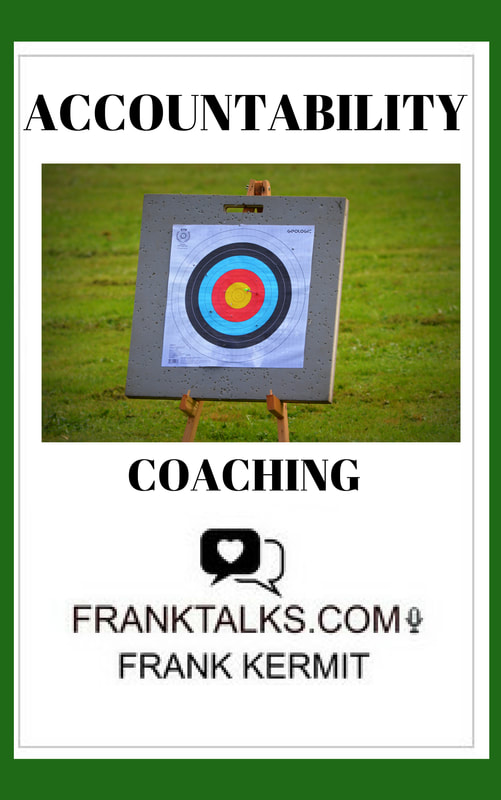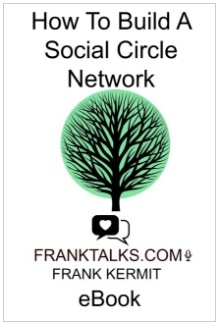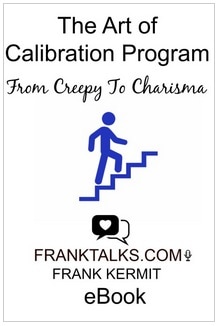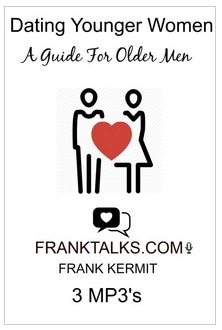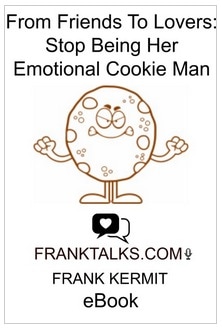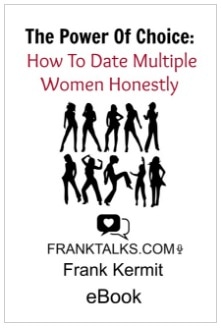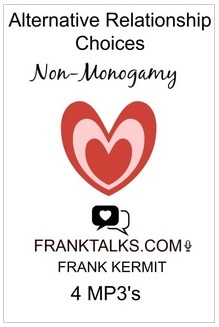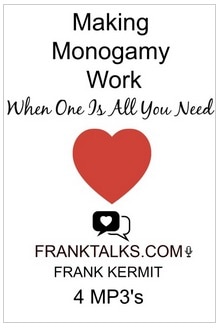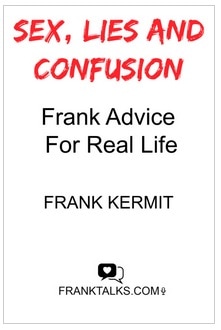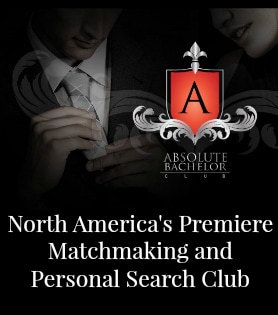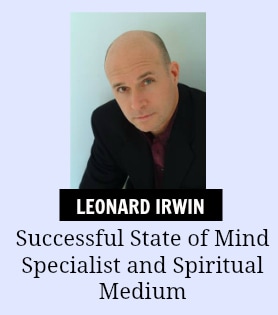|
Dating With Disabilities
By Frank Kermit I once went on a date with a woman that had severe food allergies. We went out to a movie and I wished she had told me ahead of time. Although she mentioned that she was deathly allergic to peanuts, what she did not tell me (and I guess she felt I would have inferred) is that a movie theater was not a safe environment for her. She needed to be careful that someone coming in late to the movie and sitting near her was not eating anything that could end up being dropped near any exposed skin of hers. I never ate nuts of any kind at the movies, so it was never something that even crossed my mind. Much of our date was her spending her attention on potential threats to her life. On the one hand, I could appreciate her trying to accommodate me, but on the other hand, if she had been more direct and told me the best places for us to have a date (based on what she already knew about her disability) it would have made for an even better date for us. You are your greatest ambassador in your life. You are the one person that can step up and expertly describe to others exactly how you want and need to be treated. Some people struggle with this because they do not know how to stand up for themselves to communicate what they need and want, while others struggle because, they simply do not know what it means to be treated well in general. When someone has a disability of any sort which compromises their means of living in any way, getting into the dating scene can be a little more challenging than most people. Whether your disability has to do with one of your senses (deafness), a physical challenge (you are in a wheelchair), an intellectual challenge (learning disability of some kind), or any other disability that you assume may get in the way of some aspect of your dating life, the best way to communicate what you need is DIRECTLY AND POLITELY. Let the people in your life know what you need in no uncertain terms. Tell them what they can expect from you, and what you require from them in order for the two of you to associate and get along. It is not always an easy thing to do, especially if you are not used to asking for help, or even talking about your disability in general. Not all disabilities are visible and no one would ever suspect it, unless directly told by the person who has the disability that it exists. A key point to remember is if you act embarrassed or ashamed of your disability, whenever you teach people how to treat you, then your uneasiness with your disability is part of what you are teaching others. Even if you tell them with your words that it is OK that you have your disability and that you can still have a relationship with them, if your tonality and other communication factors (your facial expression. Body language and the energy in your eyes) tells people something different such as you do not believe what you are saying; you are likely going to be rejected, regardless of your efforts. When sharing your disability, it is necessary to be positive, and reflect on the gifts your disability has given you. Yes, a disability that has taken something away from you may in fact be the same disability that has given you a gift that is likely taken for granted. If the person with the disability takes it for granted, it is more challenging to have potential romantic partners see the brighter side of it. A disability may have the effect of intangible benefits that are generally not valued as much as tangible benefits. In my experience, both personal and professional, when disabled people remain angry or resentful about their disability, it is more difficult for them to find qualities they appreciate about their disability. It is human, and very normal, to feel negative about a disability. However, when trying to establish a certain quality of life, a needed component is the ability to embrace the positive in your life, and that includes whatever positives a person can identify, even as a result of a disability. For the struggles my own weight issues have given me throughout my life, it has also given me the capacity for a non-judgmental frame of reference when dealing with people and their own body image issues. Knowing how hurtful it is to be mistreated for the way I look, I strive to endeavor to treat others in an accepting manner regardless of their body type. That is a value, albeit an intangible one. If I acknowledge my acceptance of others as a character trait of value, those around me, are even more likely to appreciate that about me as well. If I were to take my valuable trait for granted, it is even more likely that those around me will also take me for granted. Get it? Almost every disability has a capacity to give the disabled person a gift. Physical limitations can give someone the ability to have compassion for others. Allergies can give someone a heightened sense of awareness of their environments (to observe any potential threats). Chronic illness can give someone the ability to have a deep appreciation for good days and good people. These intangible qualities are easy to ignore and take for granted. However one of the most important elements for relationship success is how a person treats you. Much of that important element is based on a person's intangible qualities. When you can appreciate those qualities in yourself, it can be a means of appreciating those qualities (REALLY appreciating them) in others. That new ability of appreciating the intangible in others is one of the special qualities of being able to sort out the red flags in order to better help you find your future soul mates. Yes, it is all connected; A-ha moment anyone? Sometimes it can get tiring to always be the one to educate the rest of the world about your disability. Well, get used to it. Disability or not, we ALL have to do it. Every single one of us is responsible to educate others about who we are, and how we want to be treated. It is a never-ending burden that depending how you choose to manage it, can also be an empowering exercise of personal expression. Finally, we must acknowledge that when you do tell people you want to date and talk about your disability, and explain whatever extra attention you will need in order for that person to be in a relationship with you, that yes, you are taking a chance and YES, you WILL GET REJECTED by some people. It is inevitable. There will always be those that walk away from you, no matter how well you communicate about how feasible it is to enjoy dating you. On the flip side, there will always be those people that will not be fazed by whatever your disability is that simply would enjoy the chance of dating you. There is nothing to convince those people that they see you as a person with a disability, and not as a disability wrapped up in a person. It is those in the middle (and sometimes they are the majority) who will not know how to act. It is not that they will automatically reject you, or accept you. They simply do not know enough about your disability to decide. These are the people that you can exercise a power of influence upon. With that said, they will look to you for an example of how they should behave (accepting or rejecting). That is where the ability to connect deeply exists. Your ability to love and fully accept yourself gets the opportunity to transcend to others, helping others to have the ability to love and accept you. After all is said and done, it is your ability to love and accept yourself, in addition to your ability to communicate that self love and self acceptance to others, and not the disability itself, that will play the biggest role in the creation of your love life. As for the peanut girl, she decided that she did not want to continue seeing me. One of her reasons was that she felt we could not have a relationship because I would have had to give up going out socially carefree always on the look out for allergic dangers, and she worried I would eventually resent her. It is too bad she disqualified herself as I did not have a problem with that, and I would have loved to see her again. Frank Kermit
0 Comments
Good Bye DJ, and Thank You. I first met DJ when I was a student in Communication Studies at Concordia University in the Television Production Level 2 course, and was part of a small team of students producing a documentary on the topic of comedy as our major class project. We were a young, eager group, hungry for the chance to showcase what we could do, and build up our portfolio to get jobs in the industry. The documentary entitled Laugh-Trax featured stand-up comics Alastair McAlastair, the late Sean Keane, the musical sketch comedy team of Radio Free Vestibule (The Vestibules), and a group of wannabes comics from a workshop on stand-up comedy led by more established comics Barry Julien and David John McCarthey. At the time, that documentary represented one of the most important works any of us Concordia students had ever ventured doing towards carving a name for ourselves in the industry. We were grateful for everything these great comedians shared with us. -Frank Kermit Sexually Incompatible Couples
By Frank Kermit Sex is not the most important thing in a relationship. However, couples who love each other dearly and connect on so many levels, but whom are sexually incompatible tend to find that sex can be at the core of a number of their issues. It is not easy to want to build a relationship with someone that simply does not connect with you well sexually. Those couples who face this situation often cite the fact that in every other way the person they are with is truly their best option and is the person they want to build a future with. Acceptance is one of the ways to deal with this situation, however it is easier said than done. This involves simply accepting your partner as is, without the desire to change your partner, and for you to modify your sexual tastes by attempting experiences to reprogram what it is you find sexually satisfying to be able to better connect to your partner on the level your partner is at. This requires a good amount of work on yourself, and can also result in some harbored feelings of resentment towards your partner, even if intellectually you can rationalize your situation. For example, it turns out your partner was sexually abused as a child, and is unable to have certain sexual experiences with you, so you simply accept that parameters and limitations of your sex life, and finds ways for you to sexually function within those boundaries. However, this option may not be easy to do, especially if there are other issues in the relationship that you may resent your partner for, which can get lumped in with (and perhaps fueled by) your sexual frustrations. Another option can be to find a compromise that would be a middle ground between you and your partner. It could just come down to the two of you taking turns about who gets their main sexual needs met each time you engage in sex. For example, if you are both very dominate personalities and like being in the dominate role, you may have to take turns being dominate so that you both get some maximum sexual satisfaction with each turn. There are couples that take the route to experiment with more open relationship structures and explore non-monogamy. This involves bringing in other people into the bedroom, or allowing a partner to satisfy certain sex needs with other people that the primary partner is unable or unwilling to satisfy. Although this can successfully work for many couples, it is not for everyone, as any non-monogamous relationship structure requires a free flow of communication between the couple and extra care to address the self-esteem of each individual in the couple as well as any other individuals that participates. For example, one member of the couple has a particular sexual fetish that the primary partner has no interest in taking part in, but allows for the member to experience it with others. It is better to have the primary partner be involved on some level (supervision, or at least in helping choose the other people involved), but depending on factors like jealousy, compersion or open mindedness, has not always proven to be needed. Whatever path you choose to attempt, always keep in mind that there is nothing wrong with you and there is nothing wrong with your partner. You are simply different, and if you are unable to appreciate that in your partner there will always be other people that want your partner as is. Never take your partner for granted. Frank Kermit Learn about The Hierarchy of Dating and Relationships (and How Soon Is Too Soon For Sex) in the Coaching Workbooks: I'm A Man, That's My Job and I'm A Woman, It's My Time Sexual Compatibility When Dating By Frank Kermit Sex. How scary the word can be when having to discuss your sexual boundaries with someone new that you are dating. A common question, I am asked by singles that are aiming to figure out the dating rules, is: How soon is too soon for adults to start having sex when dating someone new? Some schools of thought suggest waiting on having sex with someone new until you have gotten to know the person better. This method helps stave off getting too attached to someone too soon, as having sex can increase attachment for some people. It is believed that holding off also helps discourage people who pretend to seek something more meaningful but that just wanted sex, and will abandon partners right after sex. Other schools of thought suggest that having sex right away works best. This method gets the sex out of the way so that neither person is pre-occupied with sexual anticipation, and prevents either partner from building up what the sex could be like in their fantasies, which may come crashing down when the reality of sex happens. It is also believed that having sex right away helps discover if you have sexual chemistry, which for some people is very important to the long term success of the relationships they seek. In the end, it comes down to sexual values and finding someone that has similar values to you, in order to best make it work. There is nothing wrong with waiting for sex, or having sex right away, as long as, you are acting congruently within the boundaries of your sexual values. It is important that you seek a partner that has compatible sexual values as you do. The trouble exists where people have hypocrisies in their personal value structure. A person who wants sex right away, but condemns any partner that willingly has sex right away has a hypocrisy that needs to be resolved. A person that believes that sex is a special intimate act that should only take place after two people have gotten to know one another over a longer period of time, but then rationalizes that a one night stand with a stranger does not count also has a hypocrisy that needs to be resolved. These become very challenging if and when you have children with someone that you do not share similar sexual values, as conflicts will arise when it is time for the sex education of your children about sexual values. It is up to you to come to terms with your own sexual values and to eliminate any personal hypocrisy you may have about sex. Seeking someone with sexually compatible beliefs is much more important than trying to follow rules for yourself that may conflict with the way you really feel about sex. It is for no one to judge you for your desires, and the best way to protect your freedom to choose for yourself, is to set an example, and not judge others for choosing differently for themselves. Frank Kermit Learn about The Hierarchy of Dating and Relationships (and how to Transition as a Couple)
in the Coaching Workbooks: I'm A Man, That's My Job and I'm A Woman, It's My Time Creating More Luck For Love: Manifesting Destiny
By Frank Kermit Check out the Emotional Needs Analysis Mastery System When it comes to having luck in life, some people really are lucky in love. These individuals tend to be attracted to people who are also attracted to them. These individuals do not appear to have to "work" to find love; love finds them. These individuals just happen to be at the right place, right time, and meet the right people for things to, well, just happen. These individuals can afford to focus on other areas of their lives and when the time is right, love will seem to magically appear. However, what does a person do, when that person does not happen to be one of these individuals who are lucky in love? If you are someone that is simply not lucky in love, chances are you cannot leave your love life up to chance and must take matters into your own hands. When you are left wanting for love in your life, doing nothing tends to be the worst thing you can do. In any area of life that you are unsatisfied with, being proactive is often the better option, than waiting idly for things to change on its own. This may mean you will have to try new experiences that could push you out of your comfort zone, but that is a reasonable trade off given everything you have to gain (i.e. all the potential new love, affection, dates and relationships you desire but do not yet have in your life). One of the ways to increase your luck for love is solid life planning. This means thinking long and hard about what your long term and short term life goals are, figuring out where you meaningfully want to end up, and then working backwards on the timeline of your life right back to the present day. Once you know where you want to end up, and have more than just a passing idea of what lifestyle you want day-to-day, you will give yourself the road map necessary to follow through and build your ideal love life in a more realistic fashion. Start out by asking yourself where you see yourself in 10-15 years from now. If you already have kids, what are your plans for them? If you do not yet have kids, what are your intentions? Career wise; are you going for further training? Are you living in the big city, or small town? What physical condition are you in and what health challenges are you likely facing based on your family history and personal health practices? How this works is that with each goal you are setting, there is going to be a time or criteria requirement that you do not control. For example, if you want a certain career, you may have to embark on a specific number of years in education and work experience. If you want to have a certain number of children there are considerations about how many years apart your children are going to be. Then you must go back and factor in any conflicts in your timeline because you may not be able to complete that particular PhD at the same time as backpacking overseas, while raising your family, on the income you are set to make at that time. How does all this factor into your love life? When you know exactly what you want out of life, where you want to be, and how you want to end up living, it will help you define where you can go to meet people that likely want the same things you want, who have compatible goals and values that you have. For example, if you know that you want to live an off-the-grid lifestyle, you can direct yourself to events, meet ups, educational symposiums and social gathers of like minded people and increase your chances of finding a love partner that wants to commit to a relationship with such a common principle-based foundation. We may not be able to predict the future, or control life circumstances, but we most certainly can influence our fortunes by knowing ourselves and planning ahead as much as possible, to get a little luckier. Frank Kermit Learn about The Hierarchy of Dating and Relationships (and how to Transition as a Couple) in the Coaching Workbooks: I'm A Man, That's My Job and I'm A Woman, It's My Time Learn more about using Sex Toys with a new lover in NOW WHAT? UNIQUE WAYS TO CATER TO HER SEXUAL E.N.A. EBOOK Couples in Transition: Couples and Sex Toys By Frank Kermit Couples who are looking for ways to spice up the sex life, may at times be interested in experimenting with using sex toys. In this context, sex toys can be referred to, as “marital aids” as in they are objects that are suppose to help aid a challenge in the marriage including adding something interesting to what may have become a routine and perhaps repetitive sex life lacking in novelty. Some of the more recognizable sex toys are designed to imitate and bear a resemblance to human genitals. Some vibrate, some do not, some expand into bigger sizes when in use, while others may constrict and tighten. They all have one common purpose…to bring an element of spark back into your sex life as a couple. One of the questions I get asked by couples that are struggling to decide if they want to experiment with sex toys is related to the concern that using a sex toy is akin to cheating on a partner. So, are using sex toys a form of non-monogamy? After all, if you do use a sex toy, you are then having sex with something other than or (depending on the circumstances) in addition too, you partner…are you still a monogamous couple? In my experience, this directly relates to how the couple in transition sees sex toys. Are sex toys an extension of an existing sex life between the couple? Are sex toys a potential threat to the existing sex life between the couple? The answer to both is, yes it can be, depending on the couple. Some couples define the idea of using sex toys as a private sexual act that they share within the boundaries of their intimacy with each other. Other couples may view sex toys like a gateway drug leading the couple to be tempted to achieve more intense sexual highs through a variety of means including involving other people. Be sure that both you and your partner are ready to talk about the effects of any emotional reactions to using sex toys that you both may not yet expect. One of the negative aspects of using sex toys is the unpredictable nature of how a partner may react to the effects sex toys has on a relationship. For example, a man may experience a sense of inferiority when he witnesses how enjoyable it may be for his wife to use a vibrator on herself to help her reach an orgasm. A woman may worry that her husband does not desire her further when he uses a triple crown in order to maintain an erection and intensify his orgasm in a way that he is not able to experience with her. It is of primary importance that the use of sex toys be reserved as a means of creating intimacy within the couples, instead of being viewed as sex toys being a replacement for either partner. For first time couples using sex toys, it is important to remember to reassure your partner that sexual pleasure is not a replacement for the emotional fulfillment of a life partner. The other negative aspect of using sex toys is the potential desensitizing that can occur. Constant use of artificial sexual stimulus (vibrators, suction pumps, sleeves) may actually dull the body’s ability to physically respond to actual human contact. In short, once your body becomes too accustom to achieving climax using any particular device, it may continue to do so to the point where, an actual human body part simply will not be enough. The human body, with all the imperfect textures, odors, and tastes that the human body comes with, learns to react through repetition and association. What you are neutral on or (in extreme cases) what turns you off today may be the only thing that can turn you on tomorrow if you regularly experience sexual climax with it, and your body makes a direct association. A colleague of mine who is a hypnotist sometimes deals with clients who are seeking ways to be hypnotized into being able to feel bodily sensations during sex without the need of sex toys. For these reasons (and others not listed here) one of the biggest challenges for couples to explore using sex toys is how to initially bring it up in conversation. It takes a couple secure in their relationship to discuss partner’s sexual interests and desires. Such conversations may be difficult as the nature of the discussion is about making a change in the couple’s sex life, which may or may not be in trouble. However, if your sex life (and or your marriage for that matter) is in trouble, then whether or not you get the sex toys is irrelevant. What is important is to start talking about it, before a fear of conflict turns a deflated banana dong into an elephant in the room. At that point, the real threat to the relationship is the lack of communication, not the transitioning sex life. There are positive elements to using sex toys. For some couples it is a safe way to explore what it would feel like to have a third person in the bedroom, without the threat of someone stealing your partner. Some people experience compassion instead of jealousy or low self esteem as they experience an empathic sexual enjoyment when someone they care about is experiencing sexual enjoyment. Some people just get turned on using sex toys on each other as it helps re-affirm a partner as a sexual being again…a status that may have been lost or buried when husband and wife become mom and dad. For couples experiencing health issues, sex toys are a means to enjoying sex again and a means to feel they are still able to satisfy their partners, without compromising what they are physically capable of enduring. Sex toys can be an enjoyable experience, and help bring a new level of intimacy for couples that may be in a transitory phase of their relationship. But just like experiments with non-monogamy (bringing in a third person, or another couple into the bedroom) the quality of the experience and whether or not it helps strengthen or destroy the relationship is less about the sex toys or the extra people in the sexual activity; it is about how well the couples prepare themselves in advance for the thrills, spills, canyons and bumps of sexploration. Happy Journeys! Frank Kermit Learn about The Hierarchy of Dating and Relationships (and how to Transition as a Couple)
in the Coaching Workbooks: I'm A Man, That's My Job and I'm A Woman, It's My Time Learn more about using Sex Toys with a new lover in NOW WHAT? UNIQUE WAYS TO CATER TO HER SEXUAL E.N.A. EBOOK Learn about The Hierarchy of Dating and Relationships (and how to Transition as a Couple) in the Coaching Workbooks: I'm A Man, That's My Job and I'm A Woman, It's My Time Couples in Transition: Monogamy and Non-monogamy By Frank Kermit Couples who are experiencing a transition in the status of their relationship may sometimes look to explore new ways of redefining their sex lives by experimenting with the boundaries of sexual permissions. This includes couples who are monogamous that are interested in exploring the terrain of the swinger lifestyle, as well as, couples who were previously non-monogamous in some way, that now want to stop any extra-circular sexual activities with others and be monogamous. Transitioning from monogamy to non-monogamy or from non-monogamy to monogamy is not always simple process. It can be challenging, because the rules for each kind of relationship are different. The mindset for monogamists is different than the mindset of non-monogamists. Also, each relationship structure faces risk factors that are not always thought of ahead of time. The main 2 rules of monogamy are (1) you only have sex with one person and (2) you never do anything that could potentially threaten rule #1. Where this gets complicated is trying to identify what exactly is a threat to monogamy. Are using sex toys, watching pornography or contact with ex-lovers threats to being monogamous? You will learn to identify which are threats to your monogamy by communicating with your partner, and finding out where your partner is comfortable. Each individual has particular boundaries, and the goal is to find a common ground about what each partner feels comfortable with while at the same time not enforcing rules that might be too constrictive which could lead to any resentment. In non-monogamous relationships the main 2 rules are (1) you can structure any kind of sexual permissions you and your partner both agree on and (2) you have to make sure that you find likeminded new partners that are capable of respecting your rules. Where this gets complicated is for the two partners to figure out what sexual permissions to agree too. It does not matter where you and your partner draw your lines in regards to sexual permissions to engage in activities with others. As long as you and your partner agree to the stipulations, it is no one else’s business. One couple may believe kissing and heavy petting with others is fine, but not intercourse. Another couple may only engage in sex with a single woman, but not engage with sex with another man or another couple. Another couple may only allow for group sex activates, but not allow for either individual of the couple to have sex with others if both partners cannot be present. Some couples may also take a lax attitude towards using condoms and encourage bareback penetration. It is no one’s business as long as you and your partner agree, and that you deal with other adults who consent to those rules. In either case, whether monogamy or non-monogamy, it is important to keep in mind that what seems like a good idea in discussion, may in fact not be a good idea in practice. For monogamy; In theory, never spending any time away from your partner which includes turning down invitations to take part in a boys’ night out, or for your cousin’s bachelorette party may seem like the right thing to do as a means to help preserve and protect the monogamy of your relationship. After all, if you eliminate any potential threats to your monogamy, you are better able to keep your monogamy intact. However, such restrictive rules may be too confining for some people, and could also be interpreted as emotionally abusive by people outside of the couple, which may result in more social hardships for the couple when having to explain why various invitations get turned down. In addition to this, there is the consideration that one or both members of the couple may even start to feel suffocated and held back in the relationship which also leads to social hardships between the couple. For non-monogamy; In theory, who your partner may decide to get sexual with outside of your primary bond should be of little concern for you, because the sex is strictly recreational and is not a threat to your relationship. However, if your partner is uncomfortable with the way you enjoy yourself with your new lover, especially if your new lover is capable of enduring certain sexual experiences that your partner does not have the stamina for, it can cause great levels of jealousy to muster. Another side effect that many people who experiment with non-monogamy tend not to be aware of: when a problem exists between how your partner relates to their new lover turns sour and they start fighting, it will actually have an effect on your own primary relationship. Few people going into it realize that when your partner breaks up with one of their lovers, it can feel like you and your partner may be experiencing the effects of a divorce as well…and you may not have even been involved in the relationship that ended! But neither relationship structure is better than the other. It is up to the couple to find the relationship structure that best works to meet their particular emotional needs and that also helps them keep what is important to them in the relationship. Simply put, you and your partner must look at what you both VALUE about the relationship structure that you are currently in, and to find ways to maintain what you VALUE about it, while at the same time find a balance with being able to explore. Both lifestyles, monogamous and non-monogamous, have their positive points and their negative attributes. Monogamy has fewer rules to understand, paternity of children is predictable, there are less people to take into consideration and there is little risk of sexual transmitted infections. However it is easier to take your partner for granted as you are not reminded of how much others may desire your partner, the restrictive rules may lead to resentment if either person starts to feel too constricted and monogamy requires work to keep building the relationship to continually be able to address each other’s emotional and sexual needs, as neither of you has the opportunity to have those needs addressed elsewhere. Non-monogamy lets the couple negotiate ways to keep sexual variety a priority in the relationship, gives the couple a chance to explore fantasies and experiences that being with just one partner could not fulfill, and can be a means to quash any incentive for infidelity or abandonment. Having a non-monogamous relationship can alleviate one partner from being asked to please the second partner in ways that that the second partner simply has no interest in. The first partner can have those experiences fulfilled by someone else, and help the second partner not feel guilty for not being interested in participating with the first partner. However whenever you involve new people into your existing love life, you also invite their personal issues. The people you may choose to associate with may not care as much about your primary relationship as you do. Sexual accidents like a condom breaking can force a couple to be very mindful of the dangers that safe sex is supposed to protect from, and you may also have to contend with your lover’s other lovers in ways you did not fully appreciate until it is too late. Commitment to your commitment is the key element in ANY transition a couple is going through. The decision to do whatever it takes to work it out and stay together It may take a long time to figure out how strict a monogamy you need to feel secure, or how freely open a non-monogamous relationship you can handle. In that time of experimenting, you must both prepare yourselves to forgive each other for the hurt you will each feel from the mistakes you both may make, and the unexpected consequences your new relationship rules may bring about. You may likely miss out on some major events that you later regret not taking part in because you were trying to establish a means of respect for your monogamy. You may end up going too far in your experimentation with non-monogamy and crossing a line that your partner and you were not clear on. Remember that this is just as much a learning journey as any, and your commitment to commitment may be the only thing that reminds you of why you entered the transition to begin with…to find a new way of staying together. Frank Kermit Learn about The Hierarchy of Dating and Relationships (and how to Transition as a Couple)
in the Coaching Workbooks: I'm A Man, That's My Job and I'm A Woman, It's My Time Learn about The Hierarchy of Dating and Relationships in the Coaching Workbooks: I'm A Man, That's My Job and I'm A Woman, It's My Time Couples in Transition By Frank Kermit When a couple is going through a change in the status of their relationship they are a couple in transition. This includes couples that are transitioning from monogamy to non-monogamy, from non-monogamy to monogamy, and also covers life stages from new parenthood to entering the empty nest syndrome, as well as caring for an elderly parent or becoming a primary caregiver to your life partner. With each transition is a change in your individual identity and how you both may define yourself as a couple. What is important is that you and your partner manage realistic expectations of what will be affected by the transition and let go of any harboring resentment that partners may unknowingly start to feel against one another. No relationship structure is perfect. No relationship structure is better than the other. They all have their positives and negatives. The key is finding what relationship structure works best for your needs, managing the reality of that relationship structure, and use the transition to help make your relationship stronger. The primary reason that -Happily Ever After- does not exist in real life is because in real life change is constant (unlike a fairy tale fantasies where things can stay the same for a long time). From one year to the next, life has a way of putting you through traumatic events, bringing about tremendous loss as well as great fortune, and ironically presenting us with new opportunities that can be veiled as bad luck. Holidays, birthdays and anniversaries can be serene moments of reflection to take in what has and has not changed for a person, couple and family in the course of a year. There are times when we choose our transitions (like the active decision to invite a new child into the family). There are times when we do not choose our transition (such as an unforeseeable accident that leaves you or a loved one incapacitated and in the care of others). There are also transitions that we know are coming, but do not know when though have already agreed to accept for reasons such as feeling obligated, love or to keep a promise (just like when a widowed parent becomes unable to live alone and must move in with adult children and grandchildren). The fact is transitional stages in life are a given. How and when those transitions occur is less in our control. However, what is within our control is how we choose to manage our transition. One of the more dangerous elements of a transition is the RESENTMENT that can build up between couples. There is a difference between our intellectual understanding of a situation, and our emotional reactions to a situation. It is this RESENTMENT and how we manage it that will direct the future of our relationships. A person suddenly caught off guard and thrust into the emotional hardships of a transition, could easily direct lots of resentment against their own partner. For example, many new parents find themselves unready for the lack of sleep they experience caring for an infant. Intellectually they knew what to expect. However, the lack of sleep robs them of energy they normally use to manage their emotional state, and causes them to have a lot less patience with their partner's idiosyncrasies (including those particular partner quirks that they have originally find endearing or attractive). Many people are incredibly surprised to learn that they had emotional expectations that were different from their intellectual understandings. A person can intellectually understand that when they get married he or she is signing up for better or for worse, but when the -worse- part happens, and they can intellectually stay committed, that does not mean he or she is fully on board emotionally. In fact, it is likely that there could be some emotional resentment building that will surface as a fight, or a lack of interest, with the relationship partner. So if you find yourself feeling resentful of your partner for something related to a transition going on in your relationship or in life, you may want to consider examining exactly what your expectations were on an emotional level when you went into that relationship. If you were emotionally banking on a happily ever after, even if you intellectually knew better, the issue might be a simple lack of maturity that comes with the understanding about the reality of life and relationships. As I teach it, it takes more than love to make a long-term relationship work. It takes a commitment to commitment. Being committed to a person is fickle, as how you feel about the person could directly impact how you feel about keeping your commitment. However, if you practice being committed to your commitment, you may stand a higher chance of sticking it out and making the effort to manage your resentment when your emotional expectations are crash against the wall of disappointment. To all couples in transition, I urge you to hang in there. There is a future if you are willing to work through it. Frank Kermit Learn about The Hierarchy of Dating and Relationships in the Coaching Workbooks:
I'm A Man, That's My Job and I'm A Woman, It's My Time 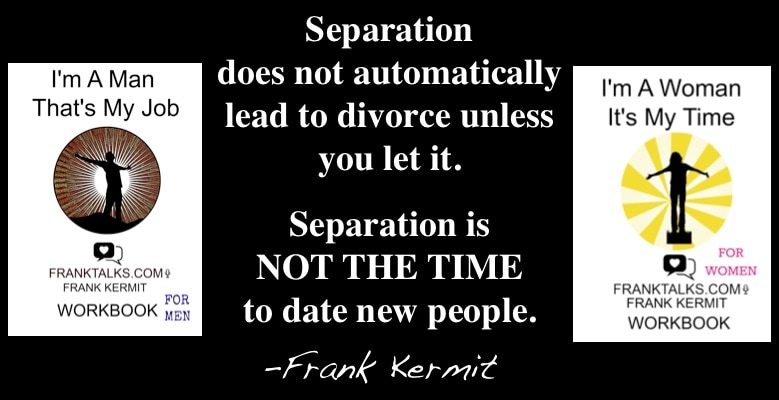 I am specifically referring to when a couple goes through a separation where they are taking time apart from each other, living separately, in a period of limbo where there is an equal possibility of either a divorce or a reconciliation. This period can be especially difficult when there are children involved. Learn about The Hierarchy of Dating and Relationships in the Coaching Workbooks: I'm A Man, That's My Job and I'm A Woman, It's My Time Separation and Dating By Frank Kermit One of the most damaging actions an individual can take is to start dating someone new when going through a separation with their serious long-term partner (spouse, common-law partner or a defacto-union). When I use the term separation here, it is not to be confused with a Legal Separation, which is a legal status, and an alternative to divorce for couples that have moral or religious objections to legal divorce. I am specifically referring to when a couple goes through a separation where they are taking time apart from each other, living separately, in a period of limbo where there is an equal possibility of either a divorce or a reconciliation. This period can be especially difficult when there are children involved. Some therapists recommend that individuals date other people. I completely disagree with this stance. Involving anyone new into a dynamic that is already in a vulnerable shape that turns it into an emotional triangle can wreak havoc on both partners, cause incredible distress on any children who rely on the partners who are separated, as well as cause confusion for the people you date. The point of such a separation is not to experience it as a trial divorce, as many couples unfortunately assume it to be. In fact, the whole reason that separations occur is to work at every possible solution to give the relationship every chance it can have to survive. You do not need to separate first in order to file for divorce (except in the rarest of cases where you must be separated for a specific period of time for a court ordered divorce when one of the partners refuses to agree to it). If you want a divorce, get a divorce. Do not sugarcoat a divorce with a separation if you have no intention of working on your current relationship while separated. What to do during a separation: Work on yourself and whatever issues you may have that contributed to the separation. Get tested for depression. Seek out therapy and coaching. Sober up and deal with your demons. Learn about how to address emotional needs and how to have your own emotional needs addressed. Spend your time alone doing self-reflection and bettering your understanding of love and relationships. Ask yourself why you would have made the choices you made that got you into this situation to begin with. Ask yourself what you have to change to build a future life plan where you will not end up here again. If you invest in a couple of years of this kind of time into healing, then so be it. What is a couple of years compared to the lifetime you can have when reconciled with your partner, and other parent, of your children? It is worth it. What not to do during a separation: It is not a time to form a close bond with new people that would threaten your relationship. Do not hang out with friends and family that have always encouraged you to break it off. It is not a time to be hanging out in bars playing the pickup game. It is not a time to be part of any unplanned pregnancy. It is not a time to be isolating your children from your partner as revenge on your partner. It is not a time to live out all those things you always wanted to do, but were prohibited by your relationship. It is not a time to make significant asset purchases like a new home. It is not a time to make any life altering plans given the lack of emotional stability in your life. It is not a time to uproot your kids from the remaining stability in their lives. Separation does not automatically lead to divorce unless you let it. It is up to you and your partner to put in the work so that it does not happen. In the event you are the only one trying to work on yourself and your partner is not, the exercise is NOT in vain. Do it anyways. At worst, you may influence your partner into participating. At best, you will reach a level of emotional health and be able to teach your children from a broken home what it is to be able to manage an emotionally healthy relationship by serving as an example. If you do not make the efforts to heal, you will likely find yourself in a similar situation again in the future. If you do heal, but do not get the co-operation you need to save your relationship, you can take comfort in the fact you will be able to form better relationships for yourself in the future, which will benefit you, and any children who will be touched by your new relationships. People are their repeating behavior patterns, and it is likely that whatever the issues that broke up your first serious relationship, are likely going to break up the second one as well, unless you work on yourself to correct those behavior patterns. Changing your partner will not solve the issues you carry inside. When the second serious relationship ends, is when most people realize they likely would have had an easier and possibly happier life (for their children as well) if they had just worked out the issues with their first serious relationship. At the very least, be ethical if you are enacting a separation with your partner. You are dealing with another human being, and giving any false hope when you have already decided that this is the beginning of the end, is a horrible thing to do. It is not just your partner you need to consider here. Even if you are too angry and resentful at your partner, and have reached a point where you just do not care, any children you have with your partner will surely be affected by the negative emotions. Your children are half you, and half your partner, and will internalize your negative feelings towards your partner, no matter how much you try to shield them from it. If you do date someone while in the middle of a separation, the worst thing you can do is throw it in your partner's face for your own satisfaction, or as a means of getting a reaction out of your partner. In fact, this is creating a divide, not just with your partner (which you may be too drunk on negative emotions to care about); it has the incredible potential to also turn your own children against you, through no encouragement from your partner. This type of violation of security in your children is more difficult to heal than the problems you have with your adult partner. If you want to end it and leave, then file for divorce and be done with it. Telling your partner that you are separating to think about things and that you intend to make the effort to work things out, when in actuality you are just making it easier to manage your secret affair that you plan to leave your partner for, is a mistake. The odds are high that you will surely end up alone, or in a worse situation than you are in now. Statistically, new relationships that start out as affairs rarely last any significant amount of time, but the damage done to the children who learn of the affair is longer lasting. Separation is no time to start dating new people. Frank Kermit Learn about The Hierarchy of Dating and Relationships in the Coaching Workbooks:
I'm A Man, That's My Job and I'm A Woman, It's My Time This article is based on my coaching workbooks: I'm A Man, That's My Job and I'm a Woman, It's My Time Rejection: The Best Worst Thing That Can Ever Happen To You By Frank Kermit Rejection is the worst best thing that can ever happen to you. Managing rejection is a necessary part in managing your love life. Over the course of your life, chances are you are going to experience rejection before you find your soul mate, and you may have to reject others in that process as well. Trying to seek out love while trying to avoid rejection is like trying to walk in the rainstorm and not get even a little wet. The sooner you accept the reality that rejection is a normal part of life (albeit an unpleasant one at times) and learn to handle the negative emotions associated, the sooner you will find peace with your desires of seeking out an emotionally fulfilling love life. Whether you put yourself out there, or are on the receiving end of someone's affections, you are going to have to deal with rejection. In fact, the more you make efforts to connect with others, then more you will surely deal with rejection. For example, if you are on a spree of approaching new people, on the numbers alone, you will deal with more rejection than you previously did when not approaching new people. If you end up going on a date with someone, but do not end up in a long-term relationship with that person, it means at some point there was a rejection of sorts. In cases where you are casually dating, and someone that you were dating has ended up in a more serious relationship with someone else, even though that person never broke up with you directly (as there was no serious commitment in place) by virtue of that person choosing someone else, it is a rejection by default. Rejection is a Message When trying to understand rejection, rejection is at its core a message. The question is not why rejection exists; the question is actually, what is the message that a particular rejection is trying to communicate to you. Understanding how to interpret the correct message in each rejection is the key to mastering managing rejection. Before getting into understanding rejection, it is important to understand that unless you are under a particular stage of personal development or are constantly getting rejection to the point where you have not had a date in over a year, keep in mind not to read too much into a rejection. More often that not, rejection has less to do with you as a person, and more to do with what is going on in another person's life. I hear it in my practice all the time how the reasons that someone rejected another had little to with the person they rejected and more to do with that person's own issues. For example, people with a fear of intimacy will go out of their way to find reasons to reject others, blaming the other person, when in fact, they are simply running scared from potentially emotionally healthy relationships or even just sex. Other times, the person is so hooked on waiting for a particular person, that they refuse to take a chance on someone new and will reject all advances. Sometimes, the person is in a "complicated relationship" (which is really a politically correct way of saying they are too scared to make a clean and final break up and move on) and they do not know if they are even single enough to date someone else. It could generally be that the other person rejects you based on the way you approached. Most rejections are not anything to read into, as most people rejecting you likely know nothing about you. Now with that said... When trying to change your behaviors and developing yourself, for the purposes of attracting a soul mate, rejection becomes a great learning tool. Whether your goal is to get a major commitment, sex with the person you are seeing, or even just managing to get someone to date you at all, a rejection from achieving your goals can be a good message about what you are doing wrong, and what you should try next. I often find that asking the person who rejected you why they rejected you, is in fact, NOT the best way to figure out what you did wrong. In many cases, the person who rejects you cannot properly articulate why you got rejected. Most people THINK they know why they rejected someone, only to have that particular reason not matter, when they do not reject somebody else that had the similar trait. That is part of what makes the learning process in relationships so challenging. You can only really ascertain why pervious partners rejected you when you succeed in not being rejected by future partners. In other words, you will know the true reasons you constantly got rejected only after you change your behaviors and no longer get rejected. Prior to my own personal development I was often told that I was being rejected for being overweight. During my personal development phase, I experimented with countless new behaviors to discover how to make myself more seductively attractive. In time, the weight no longer mattered for the majority of people (there will always be a minority that care too much), because I changed the REAL REASONS that I was originally getting rejected; my overall behaviors that were unattractive, for example: being too nice instead of asserting my boundaries. In certain areas of life, relationships being one of them, it is like first being given the test, and then being taught the lesson afterwards. When you are romantically interested in a friend that you has gotten to know you well enough, and decide to chance taking it to the next level and your friend rejects your advances, it should be interpreted as an insult. A stranger does not know you enough for a rejection to be insulting. A friend however knows you enough to know that you make a good friend, which is a key component to making a long-term relationship work. When your friend would rather keep you as a friend, rather that even try, just for one first date, to explore what more the two of you can be, that is an insult. Basically, the message is that you are good, but not good enough to even make the effort to check out if there could be something more undiscovered which could develop into a meaningful relationship. For that reason, when a friend rejects your romantic intentions, it is best to distance yourself from that friend, or end the close friendship altogether. Staying friends with a friend who consistently rejects you (assuming that you keep hoping the friendship will blossom into more) does an emotional damage to the one that keeps hoping for change. The biggest error that people make when trying to interpret rejection is they do not distinguish the difference between being rejected for incompatibility (a particular person does not see a realistic future for this coupling) and being rejected because a person that is unlovable. When I lost my ex-fiancé to my then best friend, there were a few different ways I could have interpreted that rejection. On the one hand I could have understood that she felt he was better suited to addressing her emotional needs than I. On the other hand, I could have understood that there were behaviors that I needed to improve on so that I would not have acted in a way that made me less desirable as a partner. Even more, I could have assumed that they were meant to be, and it was wrong of me to stand in their way. I could have also tried to understand that maybe her and I would simply not have worked out anyway because we really were that different and that if it wasn't my then best friend, it would have been someone else that got in the middle of it. At the time, I was so overwhelmed with negative emotions that the only interpretation I could come up with was that I was not worthy of love. I felt that I was too unlovable to ever really deserve a relationship. It took me years to deal with that demon and slay it. How different my life would have been had I learned to better interpret rejection. Then again, I would not be the very relatable relationship coach I am today without those horrible years of self-actualization. Time has given me another great interpretation of rejection: Dodging a bullet. There are times that rejection is actually a blessing, although it does not seem like that in the moment. There are times when the only worse thing than not getting the date, is actually getting the date. When I look back over the course of my life, and happen to follow up on past interests that have rejected me, I sometimes find myself grateful that I got rejected, seeing how their lives unfolded. I do not wish malice on anyone from my past, however, to see how some of their lives turned out does make me realize that not having gotten involved with them may have turned out to be a great blessing that I simply could not appreciate at the time. Think back to every time you ended up dating someone that you wished you hadn't. Chances are that someone that rejected you could have given you a worse relationship experience...and the fact you dodged that bullet is something you can be thankful for. To use a career-related analogy, if the workplace environment is a toxic one, then the only worse thing than not getting the job, is actually getting it. So the next time you get rejected, be mindful that what you don't know, isn't necessarily better than what you could have found out too late. The mark of true unshakable confidence is when you know, and trust in, your own value and recognize what you bring in to the relationship table. When "the feast" rejections your dish, it will be the dish with unshakeable confidence that will state that the feast doesn't realize the value of the dish it just turned away. Now, anyone with false bravado can say it, but so few people really believe in themselves enough to see themselves as a prize worth cherishing. The sign they do not see themselves as a prize? They stay in unfulfilling relationships. People who value themselves do not stay in unemotionally unhealthy and abusive relationships. There are people who do see themselves as a prize, but that aren't. These people come across as creepy or are simply delusional people. The difference between those peoples with unshakeable confidence from those who are delusional is that the crowds who have unshakeable confidence back up such beliefs of self worth through actions. Under their table of confidence are works that make up the legs to hold it up. They have taken stock of how they live their lives being congruent taking actions that are in line with their own belief systems. They do not take themselves for granted, and do not allow others to do it either. They have learned how to navigate the fears of abandonment in exchange for being alone rather than being with the wrong person. Managing rejection, is at the heart, of reaching a point of loving yourself, and holding out for someone to love you at that same level, keeping your expectations realistic. If you do not have faith in yourself, and appreciate what you have to offer, you run the risk of misinterpreting any rejection you encounter. At that point, you are rejecting yourself, instead of being the one person that you need most in your corner. Frank Kermit |
Categories
All
Archives
June 2024
NDG Encore Singing Chorus **** Every Friday Night Dr. Laurie Betito Quotes
|
|
FRANK KERMIT MA
EXPERT RELATIONSHIP COACH HELPING PEOPLE CONNECT |
ALL COACHING IS BY TELEPHONE OR SKYPE ONLY INTERNATIONAL CLIENTS ARE WELCOME *INTERNATIONAL CLIENTS ARE RESPONSIBLE FOR LONG DISTANCE PHONE CHARGES, +1 Canada/USA* SKYPE IS PREFERRED. IT'S FREE AND EASY TO USE FROM ANYWHERE IN THE WORLD TELEPHONE: +1-514-680-3278 EMAIL: [email protected] SKYPE: frank kermit PLEASE NOTE THAT ALL SALES ARE FINAL. NO REFUNDS OR EXCHANGES
|

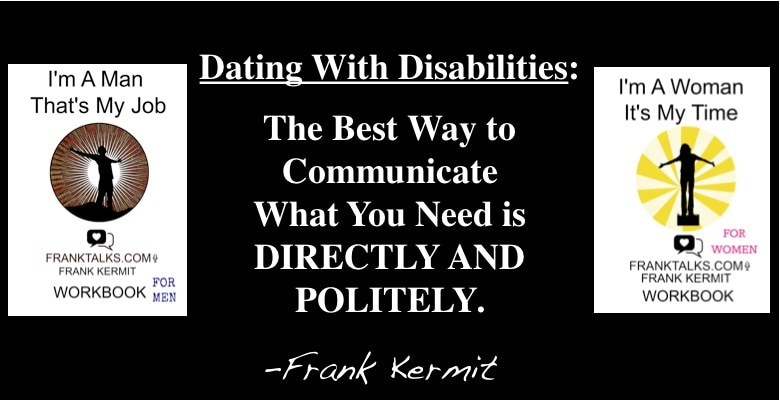

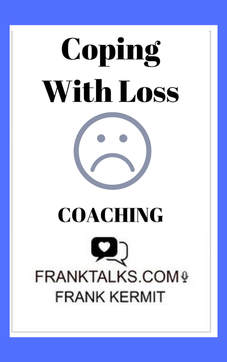
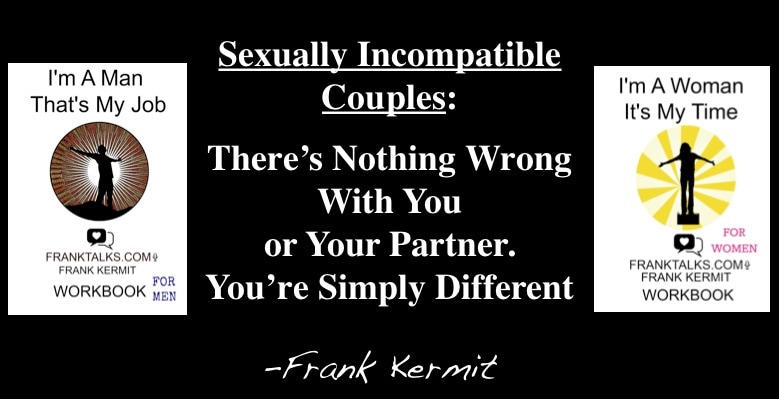
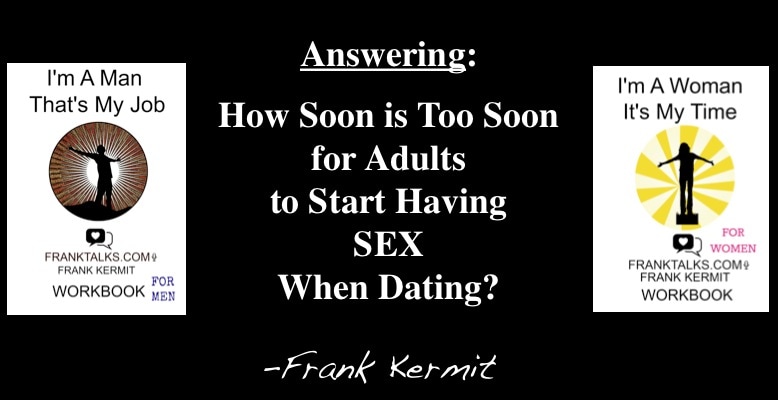
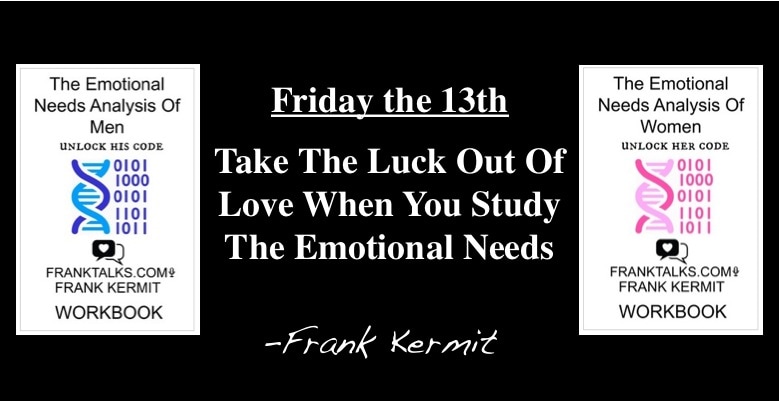
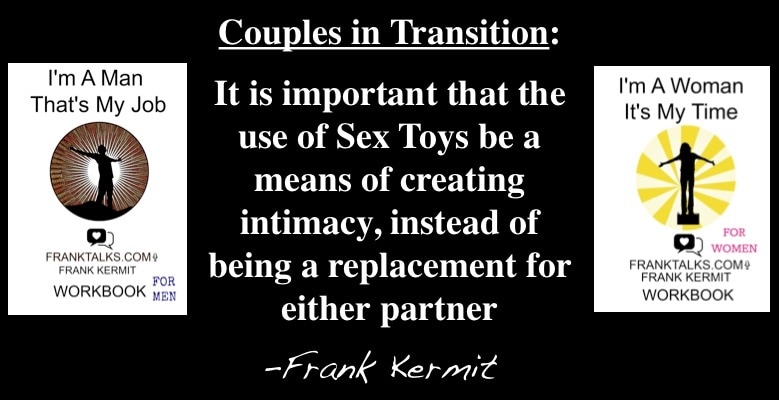
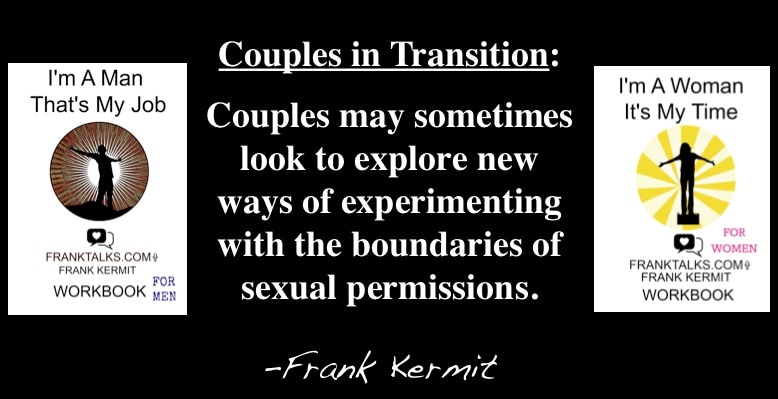
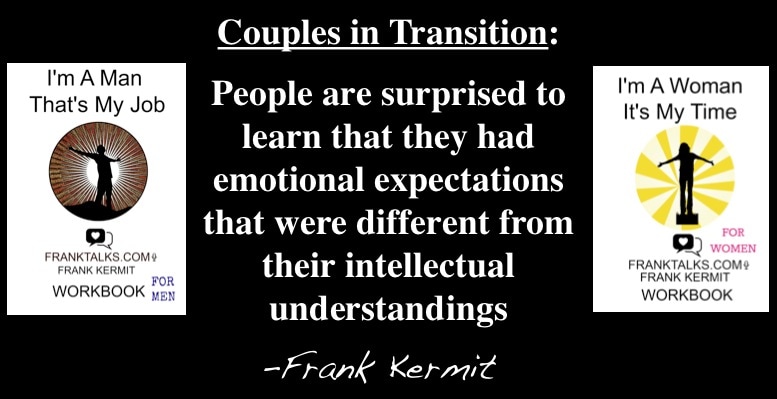
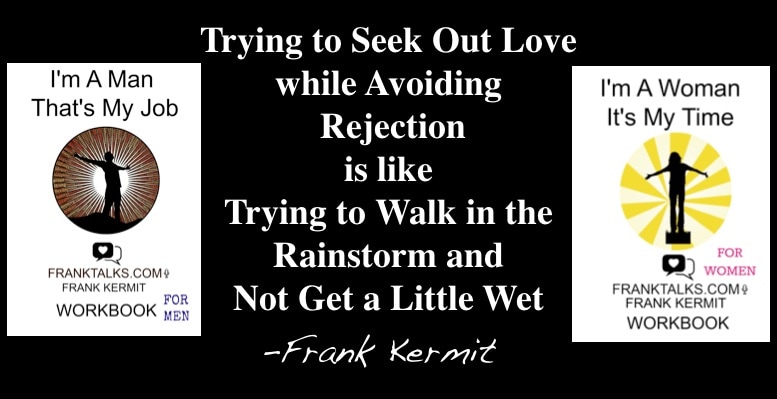
 RSS Feed
RSS Feed


